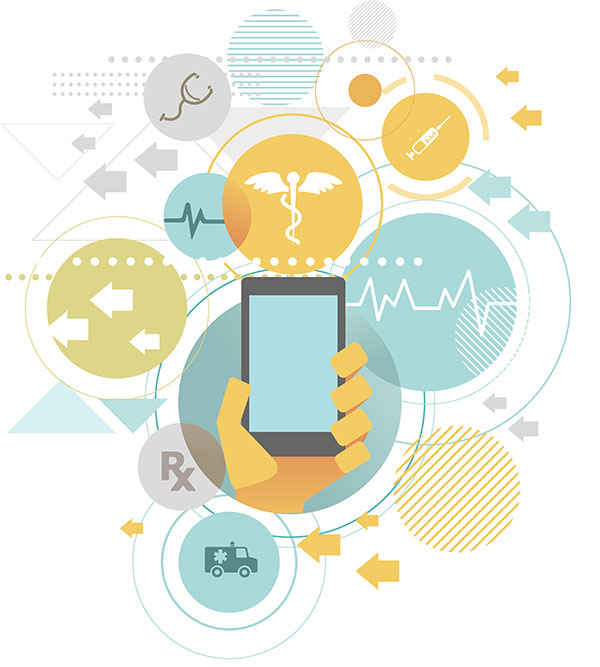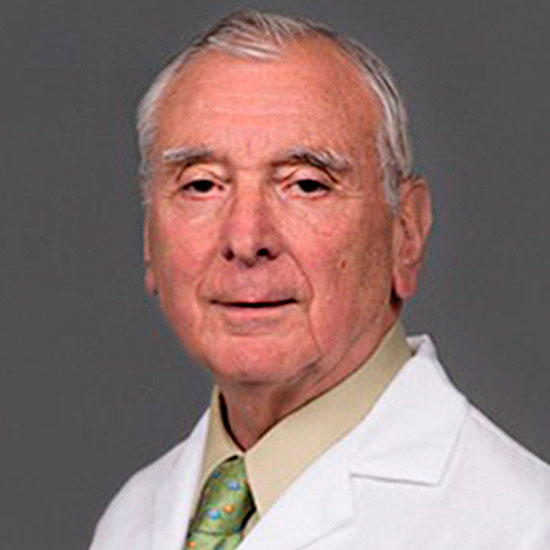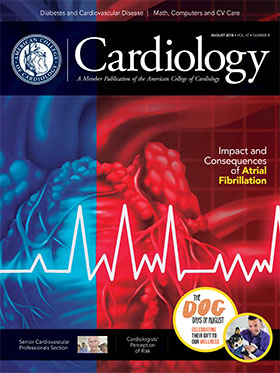Editor's Corner | Patient-Generated Care

So, the saga continues. Last year we talked about how Facebook would make our medical lives better by providing access to the broad expanse of information on social media. The information is continuous, acts like news and is becoming a favorite method for keeping up with medical information because of its ready availability and broad access. A quick review of the social media news feeds provides a fast and easy way to keep up-to-date.
But there is something wrong with this picture. Lately, we have heard that many millions of social media records are available to advertisers who generate income from the vast amount of data contained in the social media domain. Facebook has recently received significant criticism for use of many millions of social media records to send unverified data to advertise products and services with no verification of their authenticity or accuracy. An entire industry built around fake data has arisen that allows any individual to influence opinion, with inaccurate data, designed to establish a specific agenda. National policy, election outcomes, all can be swayed by inaccurate or purposely misleading data on a large scale.
Yet in our health care systems, we would like to have the data available for record analysis, managing patient care, and aggregated data to look for favorable or unfavorable trends in the health care that we deliver, always remembering that our large medical databases are used daily to improve our patient care. So far, we feel some security in using our secure medical databases for our patient care. But, we’ve already seen some examples of large patient databases being compromised, even to the point of being held for ransom.
Educating our trainees and ourselves to assess the data we encounter will be a more important task.
At the same time, patients want more access to their medical information. And patients now have direct access to their own measures of health using many of the sophisticated, advanced electronic tools. Blood pressure can be measured whenever desired with a smartwatch and heart rhythm can be checked for atrial fibrillation using a smartphone. Soon lab studies such as fasting glucose, electrolytes and creatinine will become available either with a single finger stick or noninvasively using newer high-frequency radio wave methods to obtain biochemical measures needed for ongoing patient surveillance.
I suspect that in a few years, much of the patient-generated data will go directly to the patient and may or may not get sent directly to the caregiver. When we look at the large amount of data that could be generated from patients, the ability of a caregiver to process the data will be limited, and complex filtering will be needed to avoid overloading caregivers. The next step in the process is likely to be artificial intelligence (AI) systems that can aggregate large amounts of data, refine it and interpret the results on a limited basis. Digested AI data sent to a caregiver might find meaning, while large amounts of unfiltered data would be impossible to use.
Patients will continue to seek access to their health information with the use of new tools for measurement that will expand the information available for individual patient use and allow the patient to obtain and transmit data to anyone in their care system, including themselves. As we move to an open access to our health care information, we return to the problem of how to assure accuracy of the information, how to avoid fake data, and how to avoid the traps of massive databases seeking to use private patient information for influencing opinion, selling goods and services, and influencing decisions regarding public health and public policy.
Patients now have direct access to their own measures of health using many of the sophisticated, advanced electronic tools.
Our engagement with this level of data management will only expand and will be our main method of contact with patients and other caregivers going forward. Our issues will not be with the individual data we measure with our advanced tools, but rather how we will incorporate the data we have into the practice of medicine and how we will be assured that we’re receiving accurate and timely information needed for the care of our patients.
Educating our trainees and ourselves to assess the data we encounter will be a more important task, particularly if much of our heath information comes to us through social media with minimal filtering. At present, our new tools provide an advantage over times past in managing data, but continuous vigilance is needed to assure that we are providing our patients with the information they need to maintain health.

Alfred A. Bove, MD, PhD, MACC, is professor emeritus of medicine at Temple University School of Medicine in Philadelphia, and a former president of the ACC.
Clinical Topics: Arrhythmias and Clinical EP, Atrial Fibrillation/Supraventricular Arrhythmias
Keywords: ACC Publications, Cardiology Magazine, Social Media, Caregivers, Creatinine, Blood Pressure, Public Health, Atrial Fibrillation, Glucose, Access to Information, Patient Care, Public Policy, Blood Pressure Determination, Maintenance, Attitude, Radio Waves, Artificial Intelligence, Electrolytes
< Back to Listings


